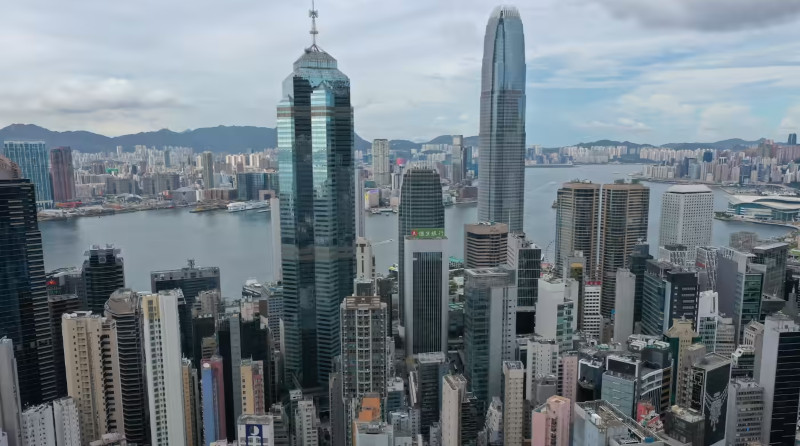Since there will be an oversupply of office space in Hong Kong equal to more than 246 football fields by 2025, property developers there are forced to provide more flexible leasing options in order to draw in firms.
Companies and institutions including Société Générale and Deutsche Bank have reduced their workforces in Hong Kong over the last two years as a result of Covid-19 isolation measures, which have caused the economy of the territory to enter a recession. Measures taken in response to the pandemic have also resulted in a mass evacuation of international and local people and halted mainland Chinese groups from returning, which were supposed to occupy space.
"The leasing market is nearing its bottom and will stay there for some time, if not forever. According to Paul Yien, executive director of office leasing consulting at JLL in Hong Kong, there is a lot of space to take in and process. Rents will be under pressure since there is a lot of fresh supply,
Developers, who had become used to making easy profits over the years because of the limited availability of land, are already being impacted by the increasing vacancy rates. One of the largest real estate developers in Hong Kong, Henderson Land Development, reported a 34% decline in first-half earnings year over year to HK$5.1 billion (US$650 million).
Some tycoons are proposing more flexible leases in an unusual move in a city where landlords have traditionally held sway to draw in renters. According to two persons with knowledge of the situation, New World Development, is providing a 6 to 9 month cooling-off period for its upcoming 11 Skies project close to Hong Kong airport.
Due to its constrained size and strategically significant position close to south China's industrial and technological core in Guangdong province, Hong Kong has continuously had the most expensive real estate market in the world.
The real estate investment company CBRE Group calculated that the city's vacancy rate at the end of the first half was 11.9%, the highest level since the third quarter of 2003, with 9.8 million square feet of vacant space. Colliers, a real estate firm, reports that as of August, the prime office vacancy rate was 12.3%.
The real estate company Savills projects that there will be 17.2 million square feet of grade-A office space available over the course of the next four years. With an anticipated annual take-up rate of 1 million square feet, this oversupply equates to approximately 250 football fields.
Over the last two years, the city has seen downsizing at BNP Paribas, Panasonic, Deutsche Bank, Nielsen, Nomura, UBS, Standard Chartered, National Australia Bank and Société Générale.
Despite the dire state of the Chinese economy and the impossibility of crossing the border separating Hong Kong from Guangdong, some mainland banks are nevertheless developing there. China International Capital Corporation leased space at Kowloon's International Commerce Centre from Sun Hung Kai in August. After vacating premises in the same building a year before, Deutsche Bank made the move.
The oversupply is also being fueled by a number of Hong Kong projects that were planned before the outbreak. According to Cushman & Wakefield Research, office rentals have decreased by 27% since the city was shaken by anti-government rallies in the middle of 2019.
In parallel, Savills anticipates a 3% increase in top-grade office rentals in Singapore in 2022. The financial district's prime offices are increasingly filling up as businesses grow, including leading Chinese legal firm Han Kun and US internet giants Amazon and Facebook. Even Singapore's Grab, a superapp, is being encouraged by the government to relocate its operations from the financial area to the suburbs.HH

